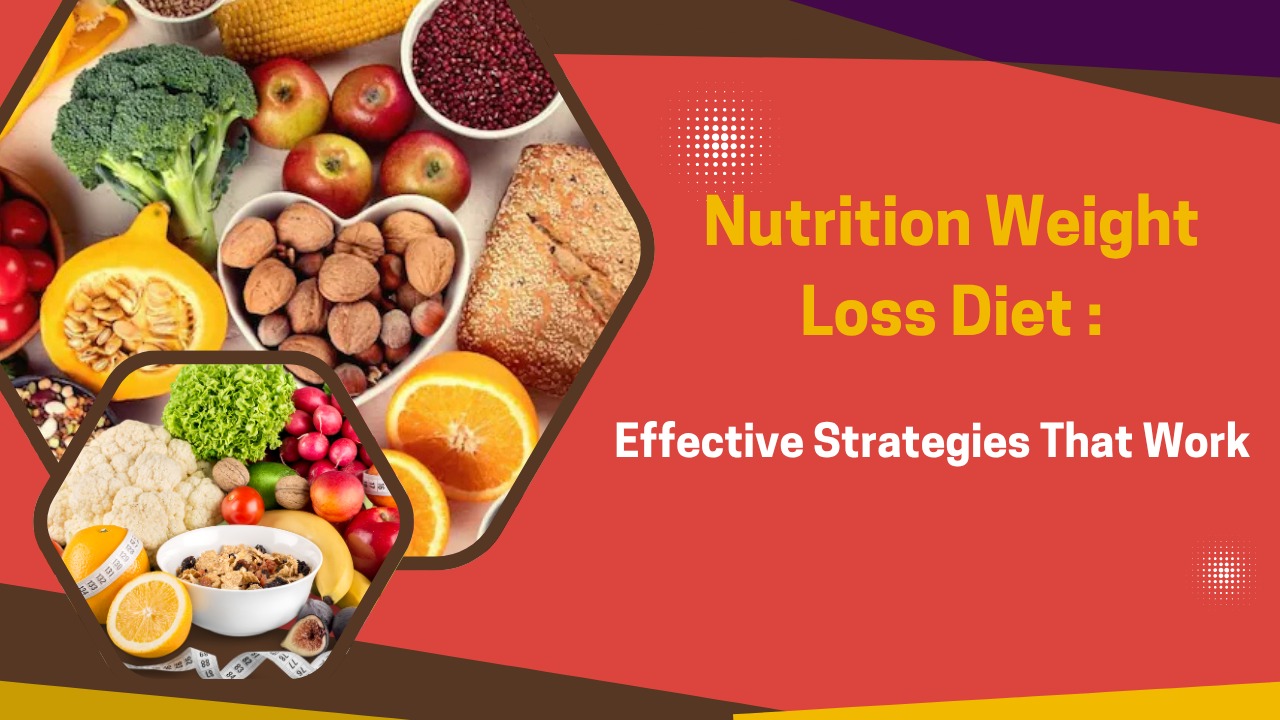A nutrition weight loss diet focuses on eating the right balance of foods to support healthy weight loss. It doesn’t mean starving or skipping meals but choosing foods rich in nutrients while keeping calories in check. Whole grains, lean proteins, fruits, vegetables, and healthy fats all play a key role in giving the body what it needs without adding excess weight.
Staying consistent with a nutrition weight loss diet helps improve metabolism, control hunger, and maintain energy levels throughout the day. Eating smaller portions more frequently and staying hydrated also contribute to better digestion and reduced cravings. These habits make it easier to avoid unhealthy snacking and overeating.
In addition to eating well, a good nutrition weight loss diet encourages a long-term approach to health. It promotes gradual weight loss that is easier to maintain over time. By making small, smart changes to daily eating habits, anyone can move toward their weight goals while supporting overall well-being.
This article delves into how a nutrition weight loss diet can help you lose weight safely and effectively, without extreme restrictions or gimmicks. We’ll explore the science behind weight loss, essential nutrients, common dietary patterns, and practical tips for crafting a personalized weight loss diet.
Understanding Nutrition and Its Role in Weight Loss
What is Nutrition ?
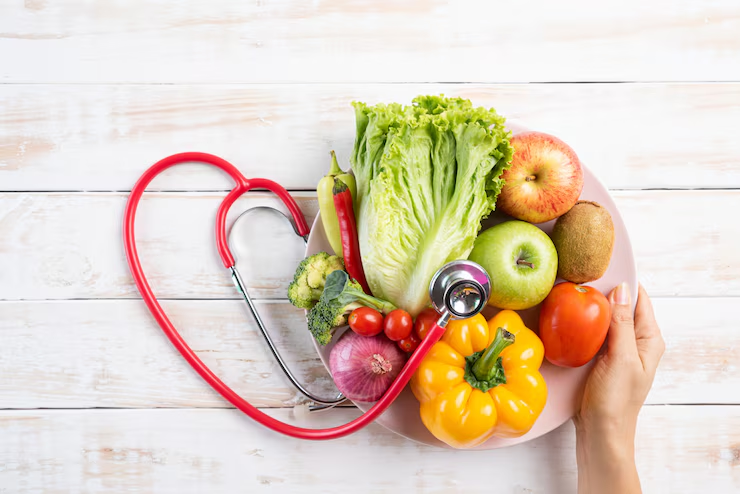
Nutrition is the process through which the body absorbs and uses food to support growth, energy, and daily functions. It plays a key role in maintaining overall health and keeping the body working properly. Without proper nutrition, the body may struggle to perform basic tasks or fight off illness.
The main parts of nutrition include macronutrients and micronutrients. Macronutrients are carbohydrates, proteins, and fats, which give the body energy and help build and repair tissues. Micronutrients, such as vitamins and minerals, support important body processes. Water is also essential, helping with digestion, temperature control, and overall hydration.
Calories and Energy Balance
At the core of weight loss lies a simple principle: calories in vs. calories out.
Caloric Deficit: When you consume fewer calories than your body burns, you lose weight.
Caloric Surplus: When you eat more than your body needs, you gain weight.
The trick is achieving a healthy caloric deficit through diet, while still getting all the nutrients your body needs.
Macronutrients: The Building Blocks of Diet
Carbohydrates
Carbohydrates are the body’s main source of energy. When we eat carbs, they are broken down into glucose, which fuels our brain, muscles, and other body functions. This energy is especially important for staying active and focused throughout the day. Whole grains, fruits, and vegetables are healthy sources of carbohydrates.
In a nutrition weight loss diet, choosing the right types of carbs is important. Complex carbohydrates, which are high in fiber, help keep you full longer and support steady energy levels. Avoiding refined sugars and processed foods can improve results and help maintain a balanced, healthy eating plan.
Simple carbs (sugar, white bread) spike insulin and may lead to fat storage.
Complex carbs (whole grains, vegetables) digest slowly, provide sustained energy, and are more beneficial in a weight loss diet.
Tip: Focus on low-glycemic index carbs to stabilize blood sugar levels.
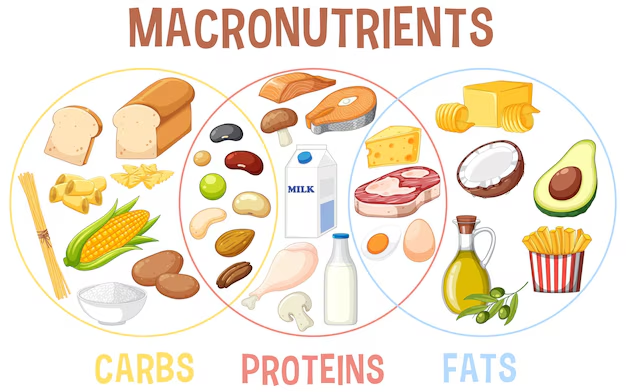
Proteins
Proteins play a key role in repairing muscles and supporting body strength. After physical activity or daily movement, the body uses protein to rebuild and maintain muscle tissue. This makes protein an important part of staying strong and healthy, especially for people who exercise regularly or want to preserve muscle while losing weight.
In a nutrition weight loss diet, protein is also useful for controlling hunger. It helps you feel full for longer, reducing the urge to snack between meals. Including lean protein sources like eggs, beans, or chicken can support both weight loss and overall wellness effectively.
Lean meats, fish, eggs, legumes, and dairy are excellent sources.
A high-protein diet has been shown to reduce appetite and promote fat loss.
Tip: Include a source of protein in every meal to reduce hunger and cravings.
Fats
Fats are important for many body functions, including hormone production and the absorption of vitamins like A, D, E, and K. These vitamins help support the immune system, skin health, and bone strength. Healthy fats, such as those found in nuts, seeds, avocados, and olive oil, also support brain function and heart health.
In a nutrition weight loss diet, it’s important not to avoid fats completely. Including good fats in small amounts can help you feel satisfied and prevent overeating. Choosing healthy fats instead of trans or saturated fats makes the diet more balanced and supports long-term success.
Healthy fats include monounsaturated fats (olive oil, nuts) and omega-3s (salmon, flaxseed).
Avoid trans fats and limit saturated fats.
Tip: Don’t fear fat—just choose the right kinds and watch portion sizes.
Micronutrients: The Unsung Heroes
Vitamins and minerals are important for keeping the body running smoothly. They help with metabolism, energy production, and turning food into fuel. Some nutrients also support fat oxidation, which means they help the body break down fat for energy. Without the right vitamins and minerals, the body may feel tired or slow.
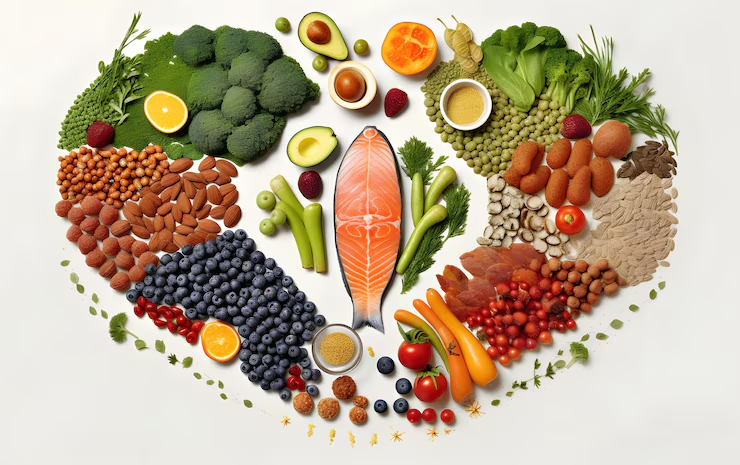
In a nutrition weight loss diet, getting enough of these nutrients is essential. Eating a variety of fruits, vegetables, and whole foods helps provide the needed vitamins and minerals. This keeps the body strong and active, making it easier to stick to healthy weight loss goals.
Vitamin D, magnesium, iron, and B vitamins are especially important in energy metabolism.
Deficiencies in micronutrients can hinder weight loss efforts by causing fatigue, cravings, or slowed metabolism.
Tip: Eat a colorful variety of fruits and vegetables to cover your micronutrient needs.
Hydration and Weight Loss
Water is often overlooked in weight loss strategies, but it plays a key role in keeping the body healthy. It helps with digestion, carries nutrients, removes waste, and supports temperature control. Drinking enough water can also prevent fatigue and improve how the body functions during physical activity.
In a nutrition weight loss diet, water can help control hunger and reduce cravings. Sometimes thirst is mistaken for hunger, leading to unnecessary eating. Staying well-hydrated helps you feel full and supports metabolism, making it easier to lose weight and stay on track with your health goals.
Drinking water before meals can help reduce appetite.
Proper hydration supports digestion, nutrient transport, and fat metabolism.
Tip: Aim for at least 2–3 liters (8–12 cups) of water daily, more if you’re active.
Types of Nutrition-Based Weight Loss Diets
Mediterranean Diet
The Mediterranean Diet is based on the traditional eating habits of countries near the Mediterranean Sea. It focuses on whole foods like fruits, vegetables, whole grains, legumes, olive oil, fish, and moderate amounts of dairy and poultry. This diet is known for supporting heart health and reducing the risk of chronic diseases.
In a nutrition weight loss diet, the Mediterranean Diet can be a healthy and balanced choice. It promotes healthy fats, lean proteins, and fiber-rich foods that help control hunger and improve metabolism. Its focus on natural, unprocessed foods supports both weight loss and overall well-being.
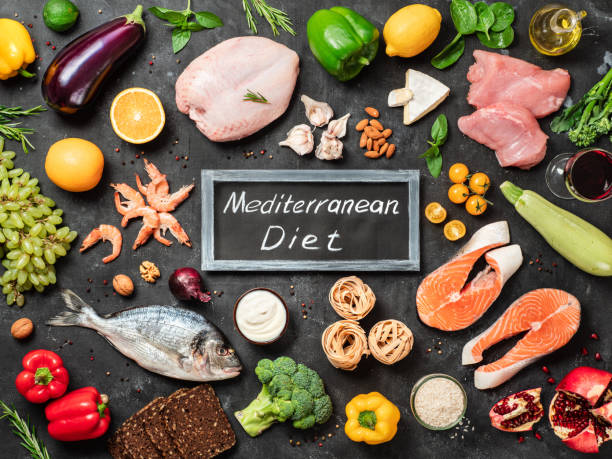
Rich in vegetables, fruits, whole grains, lean protein, and healthy fats.
Anti-inflammatory
Sustainable long-term
Heart-friendly
Low-Carbohydrate Diets (e.g., Keto, Atkins)
Low-carbohydrate diets, such as Keto and Atkins, focus on reducing carb intake and increasing fats or proteins. These diets encourage the body to use fat as its main energy source, which can lead to weight loss. Many people find these diets effective for controlling appetite and improving blood sugar levels.
As part of a nutrition weight loss diet, low-carb plans may help some individuals lose weight quickly. However, they require careful planning to ensure the body still gets enough nutrients. Including healthy fats, lean proteins, and low-carb vegetables is key to staying balanced and avoiding common side effects.
Emphasizes fat and protein over carbs to force the body into fat-burning mode.
Effective short-term results
May be difficult to sustain
Risk of nutrient deficiencies if not planned well
Plant-Based Diets (Vegetarian/Vegan)
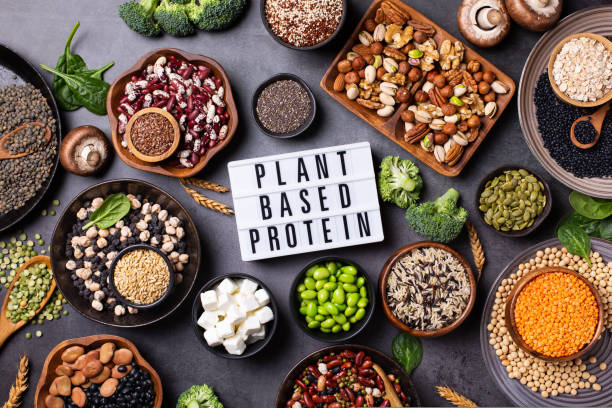
A plant-based diet focuses on whole plant foods like fruits, vegetables, legumes, nuts, seeds, and whole grains. Some versions may include dairy and eggs, while others avoid all animal products. This type of diet is rich in fiber, vitamins, and minerals, which support overall health and digestion.
In a nutrition weight loss diet, plant-based eating can help reduce calorie intake without feeling hungry. The high fiber content keeps you full longer and supports steady energy levels. Choosing fresh, unprocessed plant foods can promote healthy weight loss and improve long-term health while being gentle on the body.
High in fiber and antioxidants
Environmentally friendly
May require supplementation (B12, iron)
Intermittent Fasting (IF)
Intermittent Fasting (IF) is an eating pattern that cycles between periods of eating and fasting. Common methods include the 16:8 method, where you fast for 16 hours and eat during an 8-hour window. IF doesn’t focus on specific foods but rather on when you eat, which can help reduce calorie intake naturally.
In a nutrition weight loss diet, Intermittent Fasting may support fat loss, improve insulin sensitivity, and boost metabolism. It can also help control cravings and improve meal discipline. When combined with healthy food choices, IF can be an effective and simple way to support long-term weight management.
Cycles between eating and fasting periods (e.g., 16:8, 5:2).
Helps reduce calorie intake naturally
May improve insulin sensitivity
Not suitable for everyone (especially those with medical conditions)
How to Made an Effective Weight Loss Diet
Step 1: Calculate Your Caloric Needs
Begin by figuring out your Basal Metabolic Rate (BMR), which is the number of calories your body needs at rest. Then multiply that by your activity level to determine your Total Daily Energy Expenditure (TDEE). To create a calorie deficit for weight loss, reduce this number by about 10–20%. This step is essential in building a proper nutrition weight loss diet tailored to your goals.
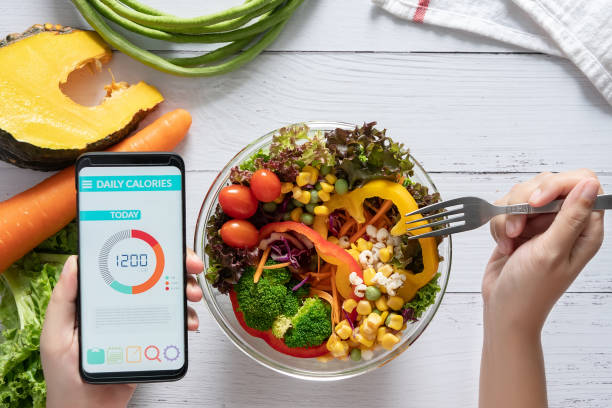
Step 2: Set Macronutrient Ratios
Once your calorie goal is set, divide it into macronutrients. A good starting point is Protein: 25–35%, Fats: 20–35%, and Carbohydrates: 30–50%. These can be adjusted based on your personal preferences, workout routine, and how your body responds to different foods. Balancing macros helps in achieving effective and sustainable results in a nutrition weight loss diet.
Step 3: Plan Your Meals
Design meals that are rich in nutrients and balanced in macronutrients. Include plenty of fiber to support digestion and help you feel full. For example:
Breakfast: Greek yogurt with fresh berries and chia seeds
Lunch: Grilled chicken over leafy greens with olive oil vinaigrette
Dinner: Baked salmon with quinoa and steamed broccoli
Snack: Sliced apple with almond butter
These meals support a healthy and effective nutrition weight loss diet.
Step 4: Monitor and Adjust
Keep track of your daily food intake using a journal or apps like MyFitnessPal. This helps you stay on target and notice patterns. If progress stalls, adjust portion sizes or change your macronutrient ratios to better suit your goals within your nutrition weight loss diet.
Tips for Staying on Track
Meal Prep: Cooking in bulk and planning your meals ahead for the week can help you stick to a nutrition weight loss diet. Having healthy meals ready to go reduces the chance of reaching for fast food or unhealthy snacks. It also saves time and helps with portion control.
Mindful Eating: Practicing mindful eating means slowing down during meals, enjoying each bite, and stopping when you feel about 80% full. This helps prevent overeating and supports your nutrition weight loss diet by tuning into your body’s hunger and fullness cues.
Avoid Liquid Calories: Many drinks like sodas, sweetened juices, and creamy coffees are packed with sugar and calories but don’t make you feel full. Cutting back on these beverages can greatly reduce daily calorie intake, making it easier to follow a nutrition weight loss diet.
Sleep and Stress Management: Lack of sleep and high stress can trigger hunger hormones, making you crave unhealthy foods. Managing stress and getting enough rest supports a balanced mood and helps you stay on track with your nutrition weight loss diet.
Support and Accountability: Having a support system makes a big difference. Whether it’s a friend, support group, or professional like a dietitian, sharing your journey helps keep you motivated and committed to your nutrition weight loss diet goals.
Sample 7-Day Nutrition Weight Loss Meal Plan
| Day | Breakfast | Lunch | Dinner | Snack |
|---|---|---|---|---|
| Day 1 | Oatmeal + banana + almond butter | Grilled chicken + brown rice + green beans | Stir-fried tofu + vegetables + quinoa | Greek yogurt + blueberries |
| Day 2 | Smoothie (spinach, protein powder, berries, almond milk) | Tuna wrap + mixed greens | Baked cod + roasted sweet potatoes + asparagus | Apple + almond butter |
| Day 3 | Boiled eggs + whole grain toast + orange | Lentil soup + side salad | Grilled turkey breast + quinoa + broccoli | Carrot sticks + hummus |
| Day 4 | Greek yogurt + granola + berries | Chickpea salad + olive oil dressing | Baked salmon + wild rice + steamed zucchini | Handful of mixed nuts |
| Day 5 | Protein pancakes + strawberries | Grilled shrimp + couscous + mixed vegetables | Veggie stir-fry + tofu + brown rice | Cottage cheese + peach slices |
| Day 6 | Scrambled eggs + avocado toast | Chicken quinoa bowl + spinach + vinaigrette | Baked tilapia + mashed sweet potatoes + green beans | Celery + peanut butter |
| Day 7 | Chia pudding + sliced banana | Turkey lettuce wraps + veggie sticks | Veggie chili + whole grain bread | Low-fat cheese stick + grapes |
Conclusion
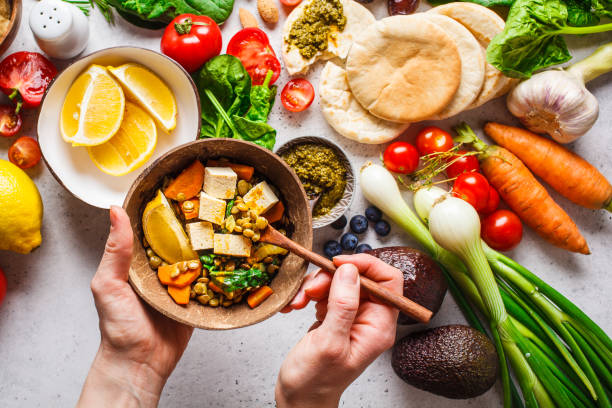
In conclusion, a nutrition weight loss diet is not about temporary fixes or drastic restrictions, but rather about making informed, sustainable changes to how and what you eat. By understanding the roles of macronutrients, staying mindful of portion sizes, and focusing on whole, nutrient-dense foods, you can create a personalized plan that supports both weight loss and long-term health.
Whether you choose a Mediterranean, low-carb, or plant-based approach, the key lies in consistency, balance, and listening to your body’s needs. Hydration, sleep, and emotional well-being are also crucial components of lasting success.
Remember, the most effective nutrition weight loss diet is one that fits your lifestyle, nourishes your body, and helps you build healthy habits that last a lifetime. With the right mindset and a commitment to progress—not perfection—you can achieve your goals and enjoy the journey to a healthier you.
FAQs
1. What is a nutrition weight loss diet?
A nutrition weight loss diet focuses on eating balanced, nutrient-rich foods that help reduce body fat while supporting overall health.
2. How many meals should I eat per day?
Most people do well with 3 balanced meals and 1–2 healthy snacks per day, but meal timing can vary based on personal preference and goals.
3. Can I eat carbs and still lose weight?
Yes, choosing complex carbs like whole grains, fruits, and vegetables in moderation is part of a healthy nutrition weight loss diet.
4. How important is protein for weight loss?
Protein helps build muscle, supports metabolism, and keeps you full longer, making it essential in any effective weight loss plan.
5. Do I need to count calories every day ?
While calorie tracking can help at first, many people succeed by focusing on portion control and making healthier food choices consistently.

